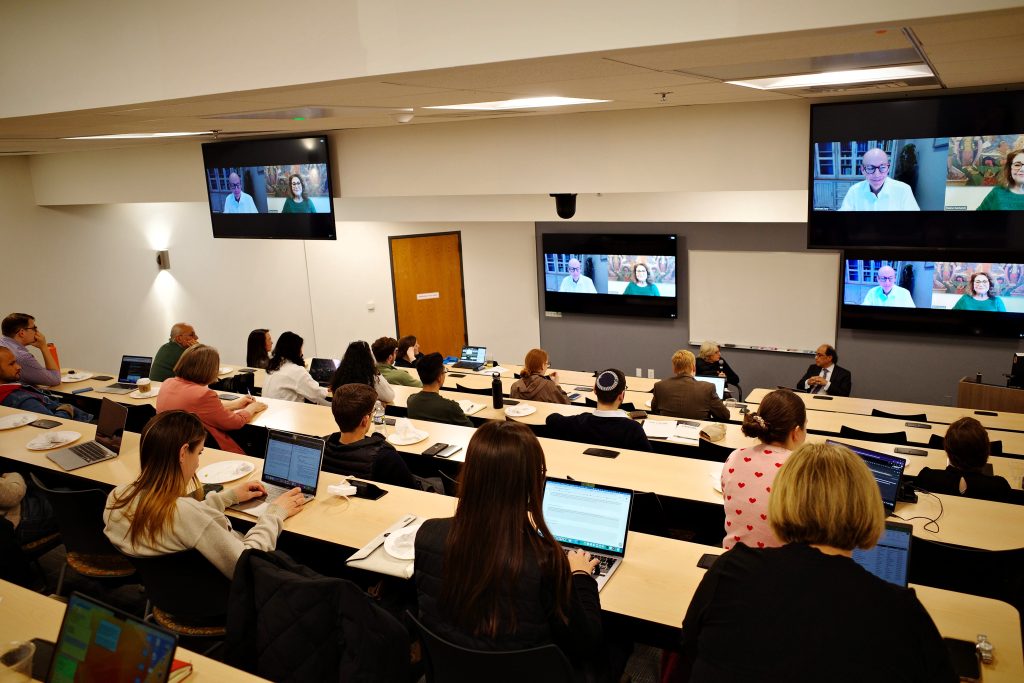
Musk, DOGE, and How We Misunderstand Government
Disruption is easy. Public service is not.
Before asking what Elon Musk is doing with DOGE, it may be worth reflecting on a deeper question: do we even understand how government functions?
At the latest instalment of Fletcher Reads the Newspaper, titled “Do the Last Two Letters of DOGE Spell Out an Oxymoron?”, Professors Barbara Kates-Garnick and Dean Bhaskar Chakravorti presided over a timely and sobering discussion on the collision between Silicon Valley-style disruption and public service. The panel, which included Michael Jary, former Lead Non-Executive Director for U.K. government efficiency, and Elaine Kamarck of the Brookings Institution, sought to disentangle hype from harm.
Misunderstanding the machinery
“We must not underestimate how difficult governing is,” Jary warned. “Many of us assume there’s massive waste that can simply be cut — but it’s far more complex. Government often fails due to the challenges of evaluating choices, weak management and the complexity of regulation.”
Kamarck, who led the Clinton-era National Performance Review, underscored the stakes. “Only when there is a huge meltdown, there is a big awareness and education about how the government does and works,” she said.
Scale is often misunderstood. “Three hundred million dollars might sound like a lot, but in the context of a $6.7 trillion federal budget, it’s a rounding error,” she pointed out. “That’s the public problem — big numbers that are, in fact, small.”
And sacking civil servants does not do much to trim spending. In Britain, less than 2% of public outlays go to administering the civil service; America is no different, with most federal spending flowing to Medicare and Medicaid.
A Private Equity Playbook?
DOGE promised Silicon Valley efficiency but delivered chaos. Many of its actions were flat-out illegal — from dismantling USAID to firing nuclear weapons engineers.
“They didn’t even have a Cabinet in place when they started firing people,” Kamarck said.
Later, when the government needed to rehire the engineers in charge of the nuclear warheads they fired, they couldn’t because all the email addresses were deleted.
Jary said DOGE’s aggressive tactics sound too much like private equity tactics: acquire, slash headquarters, cut costs. But what works in corporate restructuring rarely works in government.
“You risk losing critical capabilities and breaking public trust,” Jary warned, citing the recent disarray in USAID.
“You screw up the government, and people die,” Kamarck stressed. “Nobody dies if Twitter goes dark for five days,” she said , but disrupting services that tens of millions depend on is another matter entirely.
Both experts agreed on one thing — radical transformation requires both top-down vision and bottom-up input. Musk’s approach lacked the latter.
“The people closest to the problem often know best how to solve it, but they aren’t empowered,” said Jary.
“There was too much complacency in the last two months,” said Kamarck. “That has to stop.”
Fletcher students echoed the sentiment, one calling on Musk to resign and focus on his businesses, citing a clear conflict of interest and another urging DOGE to learn from India’s successful rollout of the Unified Payments Interface (UPI), which emphasizes public benefit and thoughtful design over brute force.
Reimagining the user experience
On the other hand, Musk has a successful track record at Tesla and SpaceX and could therefore bring valuable innovation. Tesla completely reimagined the user experience.
“Imagine, if citizens could access government services seamlessly, through a single portal, without needing to understand the labyrinth of agency bureaucracies,” said Jary. “That’s what people really want from the government — an intuitive, seamless interface.”
Technology upgrades can be extremely transformative. For instance, the U.K.’s Universal Credit system, which replaced fragmented welfare programs with a streamlined, data-driven model ten years ago, resulted in a more efficient, needs-based system. Benefits now reach those who need them most.
“We need Musk’s tech support,” Kamarck agreed. “In the U.S. government, outdated legacy systems and underpaid tech talent remain major obstacles. You can’t attract top programmers with a federal salary cap of $174,000.”
A democratic reckoning
The implications, however, stretch beyond efficiency. Jary voiced broader concerns about democratic norms. “Suppressing speech on campuses, dominating public discourse via monopolized platforms, intimidating people who wish to express democratic thought — these are red flags,” he said. “It’s important that every citizen feels the responsibility to uphold the values which the country was built on.”
“Programs can be effective and need to be run with a sense of urgency. Occasionally, we need to take risks and break things,” Jary acknowledged. “We want musk to succeed.”
But that success must align with the preservation of democratic ideals.


